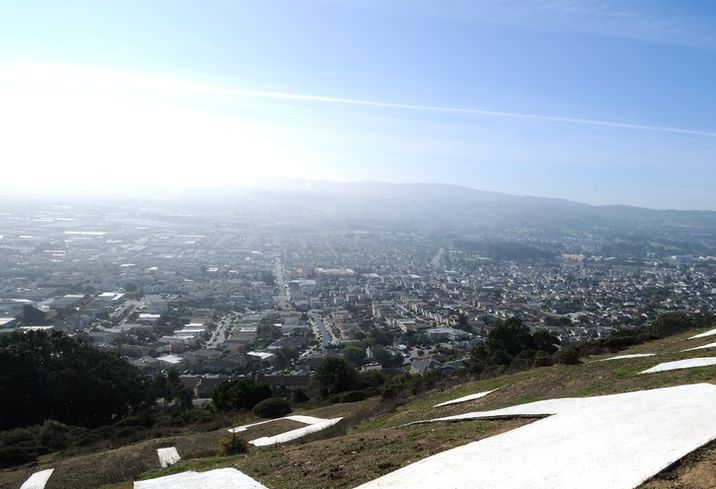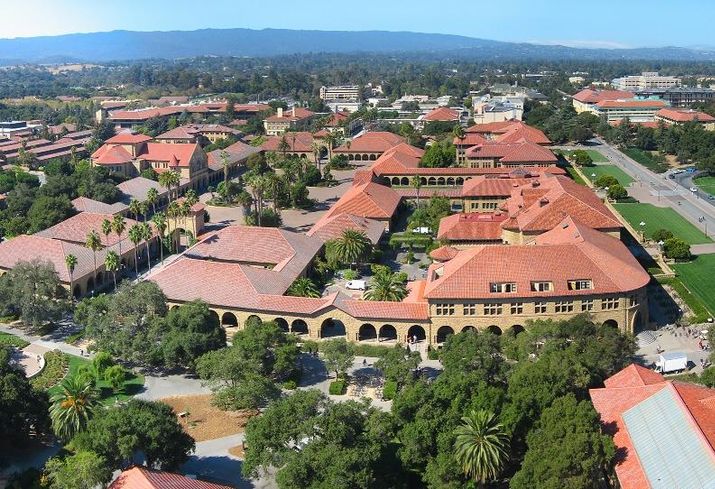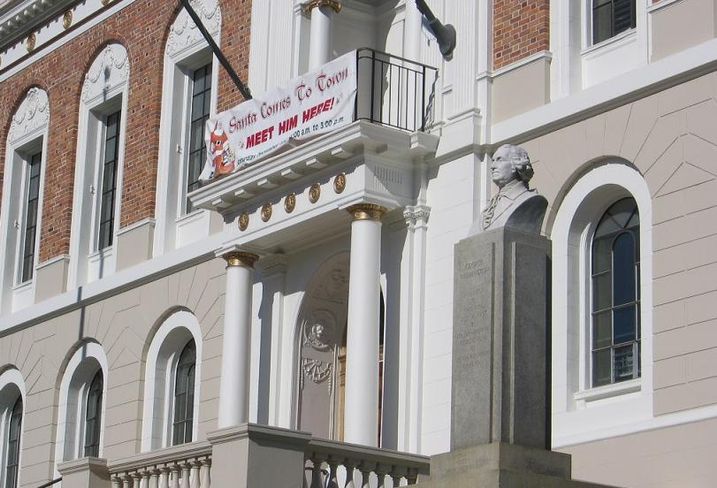All You Need To Know About South S.F.'s Biotech Boom
Biotech came to South San Francisco in 1977 when Genentech opened its doors and changed the way medicine was done. In the decades since, the city has become the largest biotech cluster in the world, and it keeps innovating. What is it about South San Francisco that makes it successful in incubating this industry when so many others fail? What is behind this boom? Bisnow looks at key strategic themes driving real estate office development in the city.
Location, Location, Location
South San Francisco’s general plan cites the city's prime location as a key competitive advantage. Located just south of the City by the Bay and next to major transport sites such as SFO and Highway 101, businesses in the city can travel regionally and internationally with ease. South San Francisco is the ideal gateway into Silicon Valley and the larger Bay Area.
The Best Kind of Neighbors

In the past few years, South San Francisco has seen a new convergence of tech and biotech. Sub-fields such as computational neurology, immune-oncology, next-gen sequencing and personalized medicine are data-intensive and require more than the traditional lab setup. They need state-of-the-art data science and computational expertise. Fortunately, there are people in Silicon Valley with deep experience in data analysis and interpretation.
Alex Greenwood, South San Francisco’s director of economic and community development, tells us the city is “uniquely positioned to bring these two worlds together, and it’s exciting to see the marriage between biotech and software.”
Google getting into biosciences represents a marquee development in this new convergence. Verily, which started as a Google biotech venture, recently agreed to sublease 407k RSF from Amgen.
"We are honored that Verily has chosen to expand into one of Alexandria's world-class collaborative science and technology campuses," Alexandria COO and S.F. regional market director Stephen A. Richardson tells us. Alexandria also counts Alphabet, Roche, Bayer, Celgene, Pfizer, UCSF and Stanford University as tenants.
A Deep Pool of Talent
Location is only part of the equation. Firms want to locate where they can find high-quality talent to build “all-star” teams. Proximity to top-ranking schools such as Stanford (above) and UCSF provide a stable of highly trained workers who want to change the world. Alex called many of the people in the biotech industry “idealistic, compassionate and professional.”
A Dynamic Ecosystem

Ten years ago, South San Francisco biotech was dominated by a few large multinational corporations. Today there are more than 210 firms in the cluster and more than half of them are biotech startups and small businesses. Alex observed a climate shift in favor of “collegial, entrepreneurial companies that form the dynamic kinds of partnerships that we see in Silicon Valley.” The end result is deeper innovation and greater desire on the part of smaller companies to locate in the city.
The growth and tremendous demand is so pronounced that HCP has broken ground on the second phase of The Cove at Oyster Point, a life science campus shown above.
A Thriving Biotech Sector

Biotech has seen a huge resurgence in investor interest over the past few years. This has translated to VC and public IPO cash flowing into the sector. The industry has put some notable wins on the board. Last year, the industry received federal approval for 45 new drugs, the most in 20 years. The economics of biotech are driving a surging demand for real estate. This translates into a vacancy rate of less than 1% in the greater Bay Area.
Among the firms building to relieve the space crunch is Phase 3 Real Estate Partners. Its Genesis South San Francisco is a 21-acre life science campus with about 800k SF. The high-rise building offers high-quality amenities such as a full-service market and bakery, fitness space and a 235-seat auditorium.
Regulatory Ease
Regulation can make or break real estate development. South San Francisco aims to make the process as painless as possible while ensuring rigor and oversight. “I am proud of our permit staff,” Alex says. “They can really solve problems, clear obstacles, and get biotech companies through the permit process faster than anyone else."



